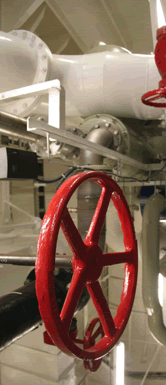- Directive 2009/72/EC concerning common rules for the internal market in electricity and repealing Directive 2003/54/EC.
- Directive 2009/73/EC concerning common rules for the internal market in natural gas and repealing Directive 2003/55/EC.
- Regulation (EC) No. 715/2009 on conditions for access to the natural gas transmission networks and repealing Regulation (EC) No. 1775/2005.
- Regulation (EC) No. 714/2009 on conditions for access to the network for cross-border exchanges in electricity and repealing Regulation (EC) No. 1228/2003.
- Regulation (EC) No. 713/2009 establishing an Agency for the Cooperation of Energy Regulators.
The common aim of this legislative package is to achieve a more complete and more integrated internal market for electricity and gas in each area of the European Union, aims which (as acknowledged by the Commission and agents involved in the European market) have not yet been achieved.
As is well known, difficulties (often concealed) in access, the insufficiency of infrastructure or the lack of common, or at the least consistent, regulatory frameworks have historically served to impede the creation of a single market.
The Directive to achieve the internal electricity market sets common standards for the generation, transmission, distribution and supply of electricity, along with standards on consumer protection, with a view to improving and integrating competitive electricity markets across the community.
It lays down the rules relating to the organisation and functioning of the electricity sector, open access to the market, the criteria and procedures applicable to the tendering and the granting of authorisations, and the operation of networks. It likewise defines universal service obligations and the rights of electricity consumers, clarifying obligations in the field of competency.
The 3rd Gas Directive establishes common rules for the transmission, distribution, supply and storage of natural gas. It lays down the rules relating to the organisation and functioning of the natural gas sector, access to the market, the criteria and procedures applicable to the granting of authorisations for transmission, distribution, supply and storage of natural gas and the operation of systems.
One novel feature of this Directive is that it introduces new possibilities of functional separation for the administration of transport facilities. Alongside effective unbundling, ISO and ITO models are also introduced. Under the ISO (Independent System Operator) model ownership of network assets remains with the original company, while technical and commercial operation of these assets is handled by an independent operator. Under the ITO (Independent Transmission Operator) model, the network assets remain with the original company. Regulations, equipment, personnel and different identities must be provided for each of the departments responsible for network administration. A supervisory body guaranteeing the independence of this Administrator must be created. The Directive lays down the obligations on operators of LNG and Underground Storage facilities.
The Directive establishes wide-ranging competencies for national regulators, including setting tolls and fees, and consumer protection measures, including the right to switching within a maximum of 3 weeks, with billing coming to an end a maximum of 6 weeks after switching. The Member States will be required within 3 years to perform a feasibility study for the introduction of intelligent metering and on the basis of the results of this draw up the corresponding implementation plan.
The purpose of the Regulation on conditions of access to natural gas transmission networks is:
- Establish non-discriminatory regulations for conditions of access to natural gas transportation networks.
- Establish non-discriminatory regulations for conditions of access to LNG facilities and storage facilities and
- Facilitate the creation of a wholesale market offering effective operation and transparency, with a high level of security in gas supply and
- Establish mechanisms for the harmonisation of regulations for access to the network the cross-border trade.
It is worth briefly remarking on the fact that much of the technical practice established in this Regulation to administer gas systems is clearly drawn from the Spanish Gas System Technical Operation Standards, evidence of the efforts and high level achieved in the process of opening up the Spanish gas sector.
The Regulation includes LNG facilities and Underground Storage sites. One of the key new features was the creation of ENTSOG (European Network of Transmission System Operators – Gas). This association of European transmission operators will serve as the partnership body to promote implementation of the internal market and cross-border trade. One of the main functions is the drafting of system codes on the initiative of the Commission under the guidelines and control of the European Regulators Agency, the functions being defined in the corresponding Regulation of the third legislative package.
The Regulation on conditions for access to the system for the cross-border trade in electricity is intended, as its title states, thereby to promote competition in the internal electricity market and to facilitate the creation of a wholesale market which is both transparent and effective in its operation, offering a high level of electrical supply security.
The Russian Federation was also centre-stage for another reason: in early August Prime Minister Putin signed a decree under which the country refused to join the Energy Charter. This legal instrument was signed in Lisbon in 1994, and is a mechanism for cooperation between Western and Eastern Europe, making explicit reference (among other issues) to the legal security of the process of investment in the energy chain.
The European Commission also maintained a high level of activity to promote what was referred to at the Prague Summit (May 2009, involving the European Union and delegates from the Caucuses, Central Asia and the Middle East) as the Southern Corridor: crude oil and natural gas connections (including the Nabucco gas pipeline) from the eastern shoreline of the Caspian Sea to Europe.
The 4th Euro-Mediterranean Energy Forum (Barcelona, March 2009) ended after three days of debate with a joint call from the countries of the Mediterranean basin for the development and application of a new regulatory framework for the region to support investment in the field of energy.
The agreement reached on 18 November by representatives of the European Parliament and of the Council on improvements to the energy efficiency of buildings, with a timeframe of the year 2020, is intended to lead to a new Directive setting out an action plan to reduce consumption of natural resources (in particular energy) in the building sector. This proposal is also a redrafting of Directive 2002/91/EC, with the aim of extending its scope of application, while also clarifying and simplifying elements of its content.
In late September London hosted the 2nd Citizens' Energy Forum Meeting. The meeting, like its predecessor, was headed and sponsored by the European Commission, and was attended by national and European consumer associations, representatives from the Member States, national energy regulators and representatives of the electrical and gas sectors.
The Conclusions of the forum stressed that it noted with great interest the new requirements set out in the Third Energy Package to be implemented by the Member States. The forum highlighted in particular the indications regarding vulnerable consumers: the Member State must take appropriate measures to protect end consumers, and in particular the most vulnerable consumers.
At the meeting Commission representatives emphasised the fact that the new Third Energy Package regulations include the need for consumers to receive proper information about their gas and electricity consumption and the costs incurred, thereby allowing them to regulate their consumption. The forum welcomed the good practice developed by companies and called for energy bills to be clearer.
In July the Council of Ministers of the Union approved the imposition of import tariffs on biodiesel from the USA, on the basis that the subsidies given by the US government for such fuels represent unfair competition with the sector in Europe. It should be remembered that the rapid development of the sector (which enjoyed huge prospects just two years ago) led to speculative processes in the cereals sector worldwide. The current situation is one of sustained growth, an important process of research and a number of local imbalances.
In September, the Council adopted a proposed Directive to maintain a minimum stock of oil and oil products. The Directive would supersede Community legislation in this field (Directive 67 and 73 of 2006), establishing markets for the operation of crude oil stock mechanisms, guaranteeing the viability of supplies of crude oil and derivatives in the event of a crisis.
Within the context of the EU-United States Summit held in Washington on 3 November, the first meeting was staged of the Joint Energy Council, a new mechanism for cooperation intended to expand on multilateral energy projects. Strategic energies of mutual interest, cooperation on energy policy and cooperation on new energy technologies focused discussions at this first meeting. Future gatherings will be held yearly.
This section must lastly include a reference to the Treaty of Lisbon, which was happily passed after a long gestation. This is the latest revision of the Union Treaty, superseding the Treaty of Nice. However, unlike its predecessor and the Treaty Establishing the European Economic Community, the Treaty of Lisbon includes a section (Title XX) dedicated exclusively to energy, in Article 176, the first two of its three sub-sections being set out below:
| 1. |
In the context of the establishment and functioning of the internal market and with regard for the need to preserve and improve the environment, Union policy on energy shall aim, in a spirit of solidarity between Member States, to:
|
||||||||
| 2. | Without prejudice to the application of other provisions of the Treaties, the European Parliament and the Council, acting in accordance with the ordinary legislative procedure, shall establish the measures necessary to achieve the objectives in paragraph 1. Such measures shall be adopted after consultation of the Economic and Social Committee and the Committee of the Regions. |


-
 GAS NATURAL
GAS NATURAL

